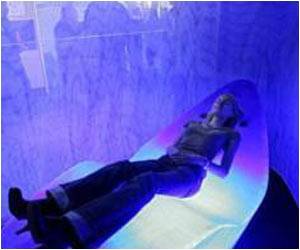New recommendations from the ACP suggest that people diagnosed with obstructive sleep apnea (OSA) should lose weight and use continuous positive airway pressure (CPAP) as initial therapy.

"Plus, losing extra weight is associated with many other health benefits."ACP recommends a mandibular advancement device (MAD) as an alternative therapy for patients who prefer it or who do not tolerate or comply with CPAP treatment."The evidence shows that a mandibular advancement device can effectively improve sleep study results and sleepiness," Dr. Cooke said. "However, CPAP more effectively raised the minimum oxygen saturation compared to MAD."ACP's guideline, "Management of Obstructive Sleep Apnea in Adults," also includes advice to help physicians practice high value care. "Physicians should stress the importance of compliance with treatments, especially CPAP," said Dr. Cooke.
"Doctors should weigh patient preferences and the likelihood of therapy adherence against costs before initiating CPAP treatment."The available evidence was limited on treating OSA with surgery, which is associated with serious adverse events and should not be used as initial treatment.ACP developed the guideline based on a systematic evidence review sponsored by the Agency for Healthcare Research and Quality.Risk Factors and Signs of Sleep ApneaAlthough OSA is more common in people who are overweight, the condition can affect anyone at any age.
The risk increases as people get older. Men are more likely than women to have sleep apnea. A family history of sleep apnea also increases risk for the condition.One of the most common signs of OSA is loud and chronic snoring. Others signs and symptoms of sleep apnea include morning headaches; memory or learning problems; inability to concentrate; feeling irritable, depressed, or having mood swings or personality changes; waking up frequently to urinate; and waking up with dry mouth or a sore throat.
Source-Eurekalert
 MEDINDIA
MEDINDIA




 Email
Email










